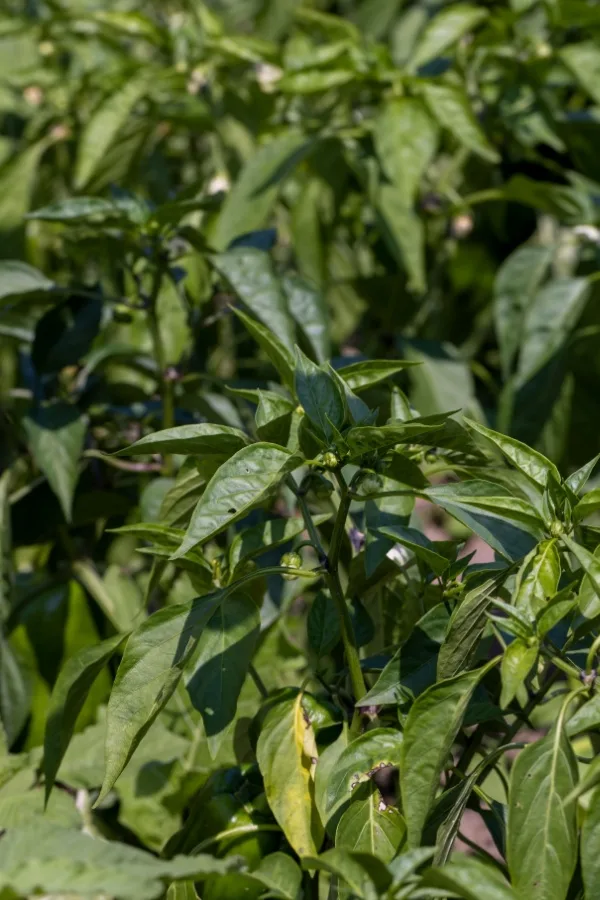Best Fertilizers for Peppers: Take Full Advantage Of Plant Health and Yield
Best Fertilizers for Peppers: Take Full Advantage Of Plant Health and Yield
Blog Article
Organic Vs. Synthetic Fertilizers: Which Is Best for Nurturing Healthy Pepper Plants?
In the realm of nurturing healthy pepper plants, the choice between organic and synthetic fertilizers stands as an essential choice with far-reaching implications. While both options aim to supply essential nutrients to support plant development, the nuances of their effect on the soil, plant health and wellness, and the atmosphere trigger an argument that echoes throughout the gardening neighborhood. Comprehending the distinct advantages and possible challenges of each fertilizer kind is vital for pepper cultivators looking for to maximize their yields while maintaining a lasting and eco-conscious approach.
Benefits of Organic Fertilizers
Organic fertilizers supply an environmentally-friendly and sustainable method to beneficial pepper plants, providing vital nutrients without making use of synthetic chemicals. These all-natural fertilizers are stemmed from natural sources such as compost, manure, bone dish, and seaweed, promoting dirt wellness and biodiversity. Unlike artificial fertilizers, natural choices launch nutrients slowly, making certain a stable and well balanced supply for pepper plants to flourish.
One considerable advantage of organic plant foods is their ability to boost dirt structure and water retention. By boosting dirt wellness, natural plant foods advertise helpful microbial task, which assists in nutrient uptake by pepper plants. In addition, organic plant foods decrease the danger of chemical run-off, safeguarding water sources from air pollution and protecting the environment.
Moreover, organic fertilizers add to long-term dirt fertility by promoting the development of advantageous soil organisms. These microorganisms help damage down raw material, releasing nutrients in a kind that is quickly available to pepper plants. best fertilizers for peppers. By promoting a healthy dirt environment, organic fertilizers support lasting pepper growing techniques that benefit both plants and the setting
Drawbacks of Artificial Fertilizers
Artificial plant foods, in comparison to their natural equivalents, pose different drawbacks when used to nurture pepper plants, influencing both plant wellness and environmental sustainability. One significant downside of artificial plant foods is their propensity to seep nutrients from the dirt rapidly. This rapid leaching can cause nutrient imbalances in the soil, triggering plants to experience from shortages or toxicities. In addition, synthetic fertilizers can hurt valuable dirt organisms, such as earthworms and valuable bacteria, disrupting the soil ecosystem's equilibrium.
Moreover, the overuse of artificial plant foods can add to water pollution. Excess plant foods not absorbed by plants can get rid of into water bodies, leading to eutrophication, where algae blooms diminish oxygen levels in the water, harming marine life. In addition, artificial fertilizers are normally stemmed from non-renewable sources, such as nonrenewable fuel sources, contributing to carbon emissions and ecological destruction during their production.
Nutrient Absorption Comparison
When comparing natural and artificial plant foods in terms of nutrient absorption, organic plant foods have the advantage of giving a more well balanced and slow-release source of nutrients. Organic plant foods have a selection of macro Related Site and micronutrients that are not just advantageous for the plants but likewise advertise healthy and balanced soil microbial activity, which helps in nutrient uptake.
Furthermore, organic plant foods improve soil structure and water retention ability, enabling pepper plants to access special info nutrients more effectively. This enhanced soil high quality facilitates origin development, enabling much better nutrient absorption. Synthetic plant foods, although initially enhancing plant development as a result of their high nutrient focus, may prevent lasting nutrient absorption by derogatory soil wellness gradually.
Environmental Effect Factors To Consider

On the other hand, synthetic plant foods, although frequently even more concentrated and promptly readily available to plants, can have destructive impacts on the environment if not used appropriately (best fertilizers for peppers). Their production requires high power inputs, resulting in greenhouse gas discharges and adding to environment change. Furthermore, the drainage of excess artificial plant foods can he said contaminate water resources, leading to eutrophication and hurting marine environments.
Finest Plant Food Practices for Peppers
To achieve this, it is important to comply with finest fertilizer methods tailored to the specific needs of pepper plants. One essential practice is to carry out a soil test before applying any fertilizers.
Another important practice is to fertilize pepper plants at the best time. Generally, peppers gain from receiving fertilizer at planting and after that once again when they begin to flower. Over-fertilizing can lead to vitamins and mineral inequalities and hurt the plants, so it is vital to follow recommended application prices.
Furthermore, choosing a well balanced fertilizer with an NPK ratio that suits pepper plants' needs is basic. Inevitably, integrating synthetic and organic fertilizers judiciously can assist support healthy and balanced pepper plants while lessening environmental impact.
Verdict

Organic fertilizers supply an environmentally-friendly and sustainable technique to beneficial pepper plants, providing necessary nutrients without the usage of synthetic chemicals. Unlike synthetic fertilizers, natural alternatives launch nutrients slowly, making sure a constant and balanced supply for pepper plants to grow.
Artificial fertilizers, in contrast to their natural counterparts, pose different downsides when made use of to nourish pepper plants, impacting both plant health and wellness and environmental sustainability. When contrasting natural and artificial plant foods in terms of nutrient absorption, natural plant foods have the benefit of giving a much more balanced and slow-release source of nutrients.Moreover, natural plant foods improve dirt framework and water retention ability, permitting pepper plants to accessibility nutrients a lot more successfully.
Report this page